In the fall of 2020, bubbled in the Poconos in northeastern Pennsylvania, nineteen theatremakers from the Wilma Theater, including director, stage manager, actors, designers, a skeleton crew, and myself (serving as the project’s producer/company manager), came together to make a filmed version of Heroes of the Fourth Turning by Will Arbery. Heroes is a play about alumni from an isolated conservative Catholic college in Wyoming composed of smart, troubled, young people who speak the rhetoric of the right alongside Platonic philosophy—a collection of tortured souls verbally sparring as they finish their whiskies and deny their demons. We had been planning to produce a live production of Heroes, but the pandemic thwarted those plans. However, it still felt important to share a portrait of some people in America at the start of Trump’s presidency explored as it neared its end. (Or, at least, that was our hope; we worked through the final month of the election season, surrounded by houses with Trump signs on their front lawn.)
Little did we know that our filmed production would resonate with producers in Estonia, where they were curating their first International Freedom Theatre Festival in August 2021. The festival curators, drawing primarily from the work of their former Soviet Bloc neighbors, were interested in bringing an American perspective into the conversation, and Heroes explores some of the same forces impeding the freedoms of citizens of Russia, Belarus, and other countries. So, we packed our bags, took our COVID tests and KN95 masks, and boarded a cab, a bus, two planes, and another bus to Narva, Estonia.
With a population of fifty thousand, Narva is the fourth largest city in Estonia. It’s largest city Tallinn, comparable in size to Baltimore, feels more Scandinavian than Soviet Bloc: with its blend of old and new architecture, conspicuously absent police presence, and incredible civic services, it’s a liberal American city-dweller’s fantasy come true. Narva is situated on a river, which also acts as a border with Russia. Unlike other Estonian cities, the majority of Narva’s citizens speak Russian, watch Russian news, and want only the Russian vaccine. It is an interesting location for a freedom festival: a democratic city in a progressive country whose citizens’ language, culture, and information come from the dictator across the river.
Overseen by Vaba Lava director Mȁrt Meos and curated by European artists and producers, the festival had a three-part structure: Mornings were panels focused on the state of theatre in a given country or set of countries, including Russia, Central Asia, Ukraine, and Belarus, and Poland and Hungary. Panelists discussed the sociopolitical climate and how that climate affected their ability to make artistic work. Then, during the day, there were usually two-to-three plays, either in the Vaba Lava building or in several satellite locations. In the evening, Russian critics would speak about the work from that day in conversation with artists from those productions. These conversations were notably frank, unsparing, passionate, and thrilling—criticism as contact sport. Critiques about a production would spark a debate around big questions about the nature of our chosen art form. Audience members spoke up to defend a piece or offer their perspective on the question. The stakes felt high, but less personal than one might expect. All seemed devoted to the form and import of making great work. And then, we drank and danced all together.
Our first day at the festival, we watched our digital production on a big screen with an audience for the first time. Heroes is Chekhovian in construction: characters speak politics and philosophy to mask their longing and disintegration. They are a bunch of brilliant messes, unable to square the dogma of the Catholic church with the election of Donald Trump. Our company was able to explore these characters’ unraveling on a much more intimate scale than we normally do in our three-hundred-seat theatre in which epic sagas soar. We didn’t know how the festival audience would react to this piece—so American, so text-driven, in English with Russian subtitles. As the final credits appeared and everyone stood to leave, one young man remained seated, weeping and overcome. It struck a chord after all.

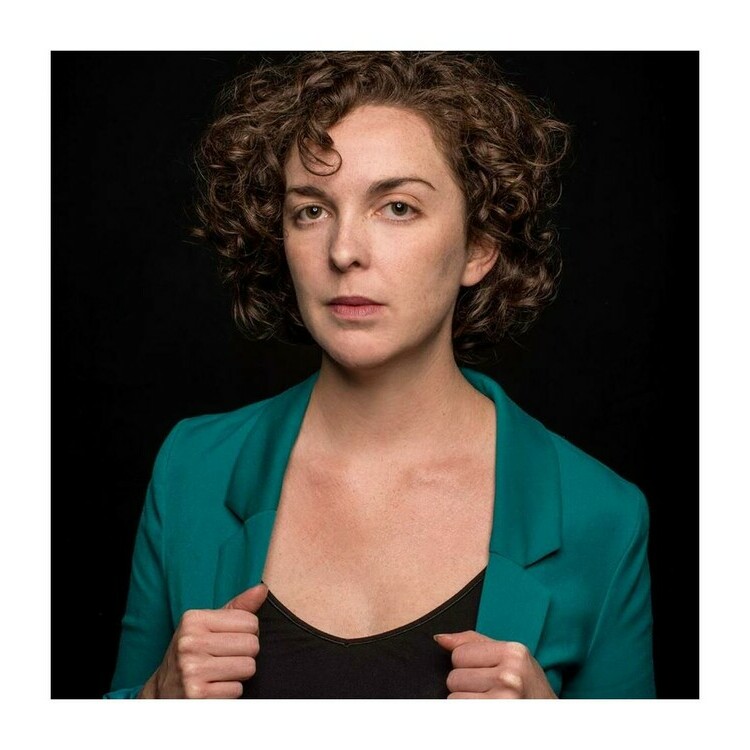
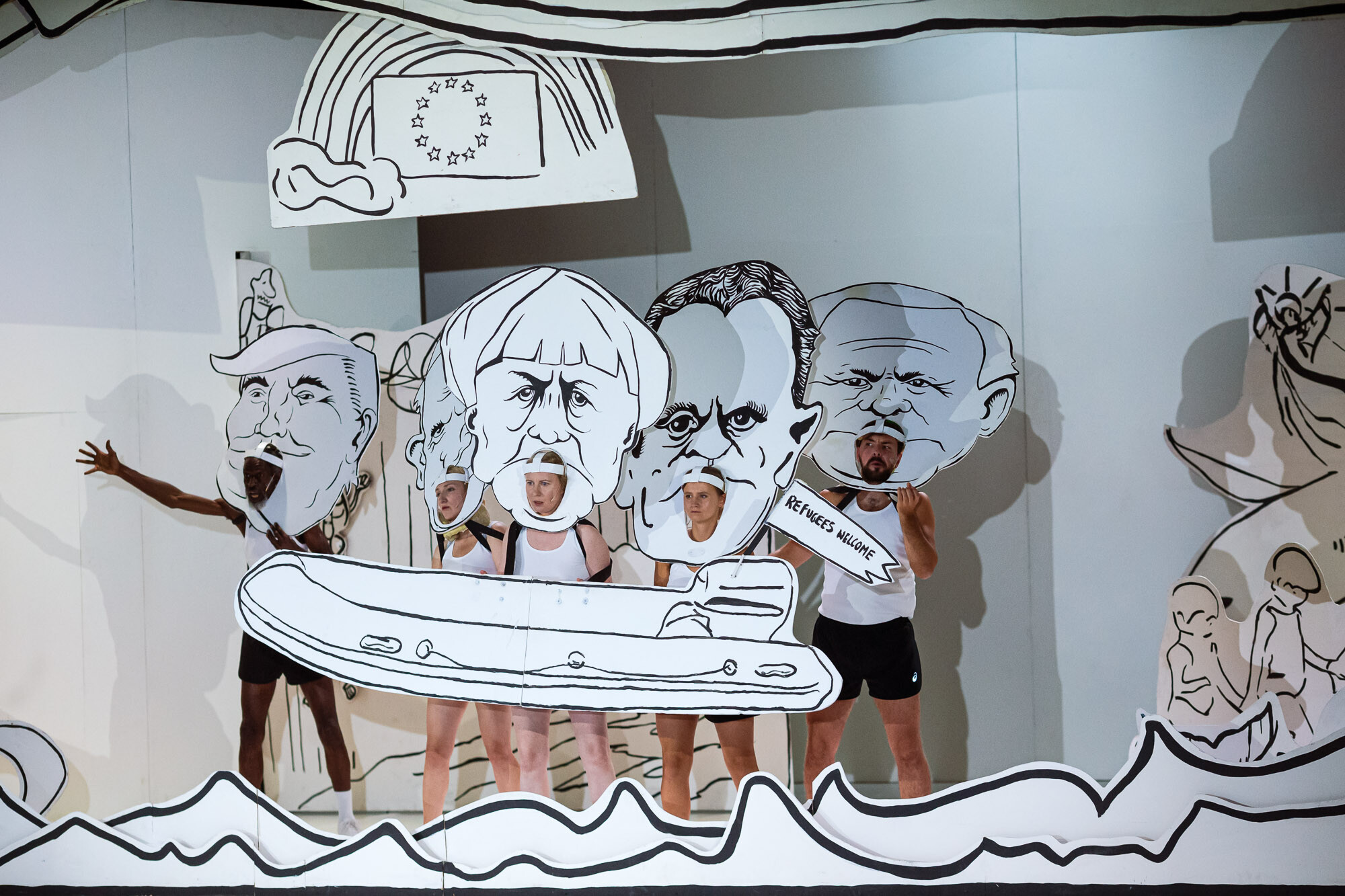
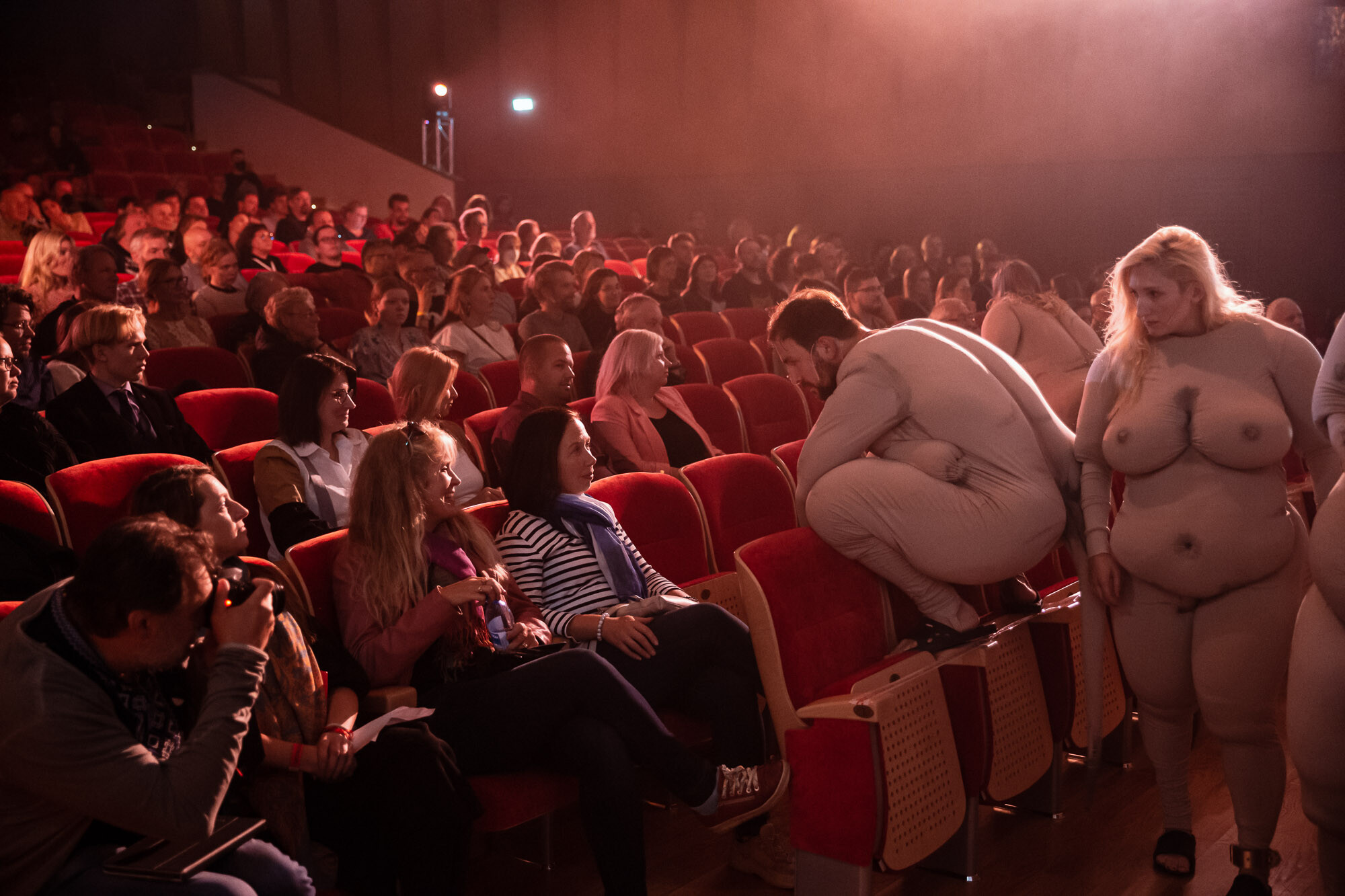
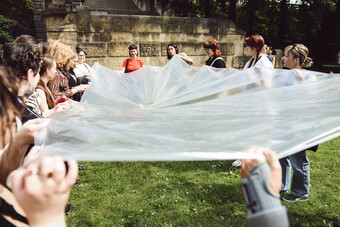

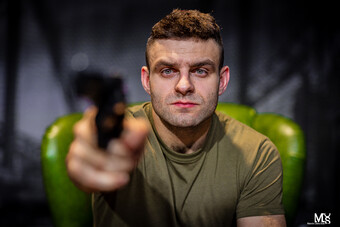

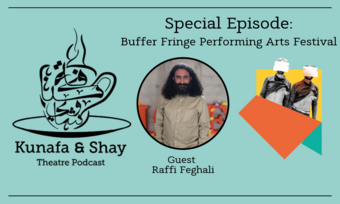



Comments
The article is just the start of the conversation—we want to know what you think about this subject, too! HowlRound is a space for knowledge-sharing, and we welcome spirited, thoughtful, and on-topic dialogue. Find our full comments policy here